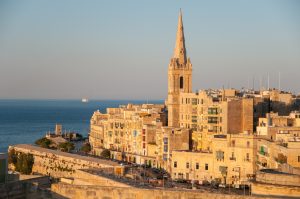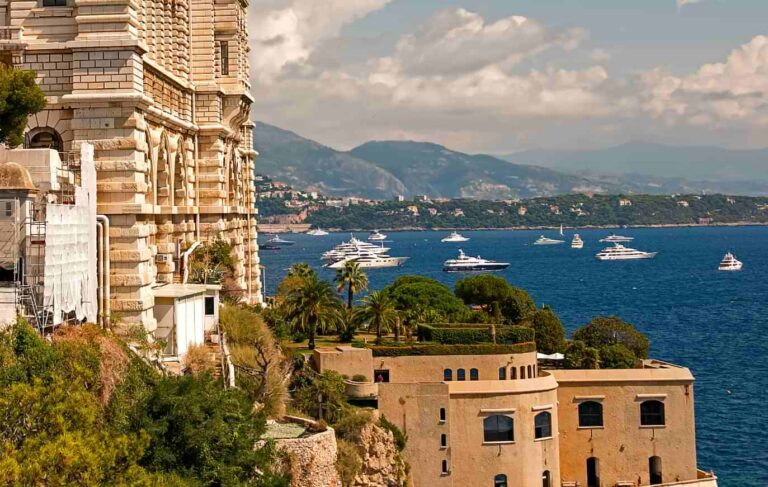Malta, a former colony of the United Kingdom, has retained the Anglo-Saxon legal tradition and bureaucratic agility.
The Maltese rulers are aware of their limitations in terms of economic development (small size, aging population, dependence on the tertiary sector), so for years they have been betting their economic policies on a card that is usually synonymous with success: replicating the Swiss model to attract new residents and companies with high economic power.
In addition, this country maintains aspects of the Commonwealth despite belonging to the European Union: for example, it has developed very attractive residency programs for investment and non-dom taxation for both EU and non-EU citizens.
But Malta is not only modern in terms of taxation, it also has a very advanced legislation on gambling, cryptocurrencies, bank insurance, etc. It is, in short, a much more advanced country than it may seem at first glance.
Why is Malta fiscally attractive?
Personal income tax in Malta can be somewhat complex, since it contemplates several exceptions, but as a general rule those who are considered as tax residents in Malta will be taxed.
How does income tax work in Malta?
Under Maltese law, an individual is resident in Malta if he spends more than 6 months a year in Malta within a 12-month period (in Malta such period is computed from April to April) or has his center of economic and/or vital interests in Malta.
Maltese personal income tax works as follows:
- Residents and domiciliaries: Resident domiciliaries are subject to personal income tax on their worldwide profits and capital gains.
- Non-domiciled residents: non-domiciled residents are subject to personal income tax on their income in Malta and foreign income remitted. They are not taxed on foreign source income.
- Taxable base: worldwide income for domiciled residents and local and remitted income for non-doms.
- Taxable income: Taxable income includes employment income, capital gains, real estate and personal income, and business income.
In general terms, Malta taxes worldwide income (i.e. all income received) at a progressive rate of 0% to 35%. The brackets work as follows:
- There is an exemption for the first €8,500
- 15% up to €14,500
- 25% up to €60,000
- 35% for amounts over 60.000€.
Additionally, under exceptional circumstances of the non-dom regimes, a flat tax of 15% is applied only to foreign income remitted to Malta, with a minimum taxation of 5,000 euros.
It is worth mentioning that Malta, like many EU countries, has a high ordinary taxation on the individual, in this report we will only analyze those special regimes that are attractive, i.e. the Maltese non-dom.

How does Malta’s non-dom work?
The non-dom (or non-domiciled) status is a specific tax regime for Maltese residents who have no fixed or permanent domicile in Malta, even though they are Maltese tax residents.
For practical purposes, the non-dom regime could bring significant tax benefits to many users.
By applying the special non-dom tax regime (which also applies in other EU member states such as Ireland and the UK), individuals who are resident but not domiciled in Malta are subject to tax in Malta on the following income:
- Local source of income and capital gains.
- Foreign source income (not capital gains) when remitted to Malta.
According to the above, persons resident and non-domiciled in Malta are not taxed on worldwide income, but are simply taxed on the income they earn or remit to Malta.
This constitutes a very attractive tax treatment for persons wishing to transfer their residence to Malta.
What are the main characteristics of Maltese non-dom?
Thus, the main characteristics of Maltese non-dom are as follows:
- Taxes are only paid for:
- Income / capital gains generated in Malta. The non-dom would pay 0 to 35% flat tax on the income generated there (mainly from his professional activity).
- The salary that can be allocated if you incorporate a company in Malta. If the user decides to incorporate a company in Malta, he could opt to be taxed at a maximum of 15%.
- Foreign income (not capital or capital gains) if received or remitted in Malta. Non-dom 15% on income remitted to Malta.
All other foreign source income would be taxed at 0% to the extent that it is not remitted to Malta.
How does Remittance Basis work? What is meant by remitted to Malta?
- Operation of the “Remittance Basis”:
- Foreign income is taxed in Malta only when remitted to the territory.
- However, the meaning of remission of rents in Malta is quite broad, and remission includes:
- Remittance of dividends to Malta to the Maltese personal bank account of the user resident in Malta.
- Remittance of interest or capital gains to the personal Maltese bank account of the user resident in Malta.
- Use of the debit card in Malta for daily consumption.
- Withdraw cash from ATMs in Malta for daily consumption.
Income earned prior to acquiring tax residency in Malta can be remitted to the territory without being subject to tax.
This means that the individual’s initial foreign capital is not covered by such legislation and can therefore be remitted to Malta without being taxed.

If I do not remit anything, can I not pay taxes?
- Minimum tax charge: in 2018 a minimum tax charge for non-doms of €5,000 (before taking into account any foreign tax allowances) per year residing was introduced for individuals who are resident but non-domiciled, i.e. non-doms. This minimum applies to individuals and married couples who:
- Obtain foreign source income of at least €35,000 per year and which is not remitted to Malta.
- Are not subject to taxation in terms of a special tax rate, such as the Global Residency Program, the HNWII, the Malta Retirement Program and the Resident Plan Regulations.
What other taxes are there in Malta?
Unlike many of the other EU countries, Malta is characterized by a low tax burden and an Anglo-Saxon tax authority.
This implies a much more permissive tradition with international structures (for example, use of figures such as trusts, partnerships, few withholding taxes, etc.).
Other of the most attractive characteristics of this country in terms of taxation are:
- There is no wealth tax.
- There are no inheritance and gift taxes.
- There is no declaration of assets either domestically or abroad.
- The indirect tax IGI (equivalent to VAT) is 18%.
- There are no luxury taxes.
- Inspections are lax and the tax authority negotiates easily, being very different from those in continental Europe.
- There is an exit tax from January 1, 2020. This implies that someone who generates a lot of business in Malta and later wants to move to a country outside the European Union would have to face a large payment before leaving Malta (provided that he/she lives for a long period of time in such country).
What are the main drawbacks of Malta?
- The corporate tax refund system is very complex and the operation and cost of the structure can be high. In addition, misuse can lead to problems with the Maltese tax authorities or the tax authorities of your country of origin.
- As of January 1, 2019, CFC rules apply that make international offshore planning or the use of shell companies more difficult.
- On January 1, 2020 the exit tax came into force. If you end up having a large portfolio of financial investments or a highly capitalized company of your own, this could imply a high taxation when changing residence from Malta to a country outside the European Union.
- Staying 183 days in Malta may displease users, and it is not a flexible limitation as the police conscientiously control the exits and entrances of freelancers.
- The Maltese financial system has been going through some difficulties and the banking industry is being very demanding in terms of compliance.
- Malta is in the eye of the storm regarding corporate tax fraud within the European Union.
- Malta can be a very attractive regime but at the same time it is complicated and costly to implement. A short-term stay would not make much sense given the cost of entry barriers.
What are the main advantages of Malta?
These are the main advantages that the user could enjoy when moving his residence to Malta:
- The non-dom can allow to be taxed practically 0.
- If you are a member of the EU, moving to Malta is free of immigration restrictions and costs.
- If you are not a member of the EU you should consider the possibility of residing in Malta via residence by investment or Golden Visa.
- Extensive network of treaties to avoid double taxation.
- There are practically no withholding taxes on account to take profit or yield from the island to other jurisdictions.
- Application of European directives subsidiary parent company.
- There is no estate tax on assets.
- There is no inheritance and gift tax.
- There is no need to declare or list assets.
- You could reside in a country with an A+ rating according to Fitch Rating Agency.
How to take the first step?
At Relocate&Save we have local lawyers specialized in obtaining residency in Malta. If you are interested in changing your tax residence to this country, please write to us using the contact form or to [email protected].
And if you are considering moving to another country, but are not sure which is your ideal destination, download our report “The top three tax destinations right now”, available for free below.



 All communications are encrypted and will be treated with absolute confidentiality. Your data will never be shared with third parties.
All communications are encrypted and will be treated with absolute confidentiality. Your data will never be shared with third parties. 




